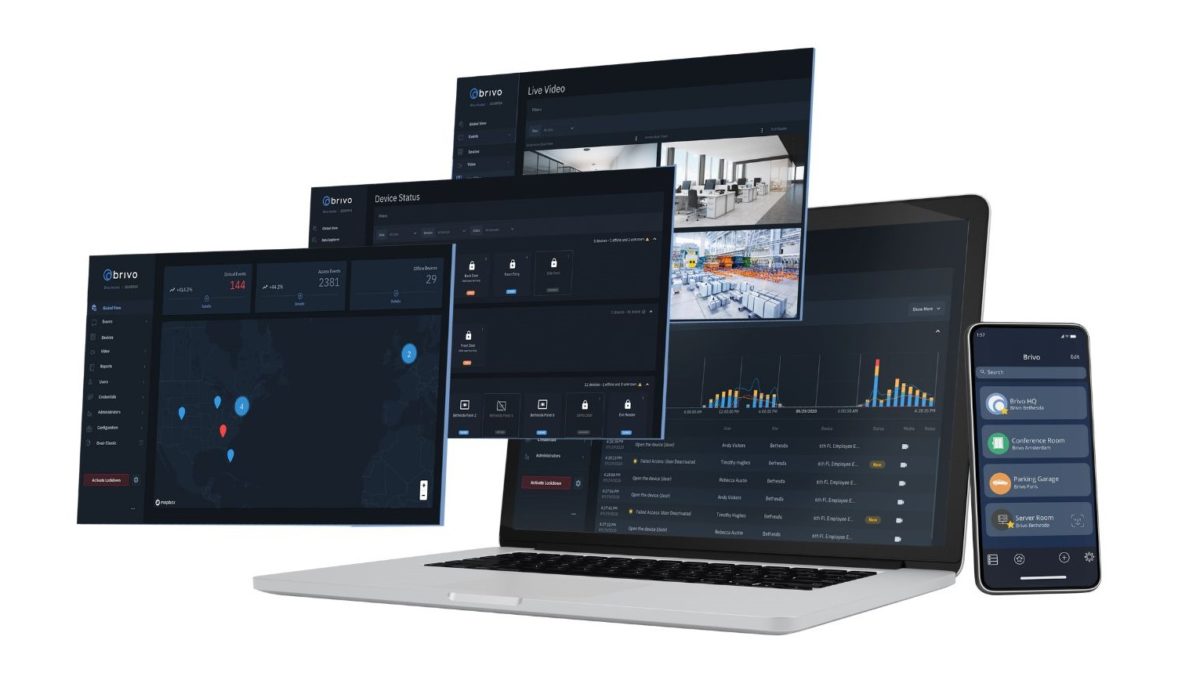With clientele ranging from an agricultural mushroom farm to the San Diego Zoo, Bethesda, Maryland real estate tech company Brivo can quite literally say it works with companies from A to Z — with a little bit of everything in between.
The “20-year-old startup,” as defined by founder and CEO Steve Van Till, is a cloud-based access management system for commercial properties. After launching its initial product in 2001, the company had gone on to manage over 300 million square feet of property on its platform with nearly 50,000 businesses as its customers. On the day-to-day, about 10 million people interact with its system either in person or on their phones via its mobile app.
The needs for commercial buildings, Van Till told Technical.ly, have changed dramatically over the past two decades — and the last two years, in particular. He thinks it’s the latest (and maybe even the last) industry to undertake the digital transformation through access control tech.
“When we entered on the scene, all of those systems were run off of a PC or a server that was inside the building, which meant that it was disconnected from the rest of the world and couldn’t interact with mobile phones, couldn’t interact with other software stacks,” Van Till said. “So, a big part of what we’re doing is moving people to cloud because it’s a more convenient and powerful platform.”
Van Till added that present-day real estate owners — whether they own commercial buildings, large residential properties or office spaces — are looking to make their properties more productive and useful, as well as more attractive to tenants. Following the start of the pandemic, he thinks they’re looking for more connectivity between the buildings, the cloud and users. That’s where tech can intervene.
The digital transformation, he explained, centers on giving buildings a digital facade, which lets us interact with them through mobile and web applications. This would be similar to what we do with social media, managing finances, ordering groceries and more.
“Buildings, and property in general — even though they’re the world’s largest asset class, have really stood out, as people in the industry will tell you, as being behind the times technologically,” Van Till said. “So we’re in the midst of witnessing a rapid catching-up period in the entire world of real estate.”
Brivo’s technology, Van Till said, hasn’t changed a whole lot since the pandemic. But he thinks that the last two years have increased the desire to add touchless, remote, email and app-based technologies into the office. There’s even a premium emphasis on these integrations as offices get remodeled and employees move back into the workspace.
One thing that has changed, though, is how office spaces look. Van Till has seen several commercial office buildings shift into coworking configurations, with floors converted into shared workspaces and, in effect, becoming coworking facilities. And with more division of spaces, he sees even more of a need for digital access control and property technology for both management and security.
Shifting to flexible work models like coworking, hybrid models or tricking out (and thus incentivizing) existing office space also means that technology has the chance to boost community in the workplace, added Brivo CMO Mary Clark.
“It’s the ability to create community in little microcosms that subsequently also need very critical security and appropriate access,” Clark said. “So it’s really table stakes for this to work. Just [to] have the appropriate access control, we need to adapt as employers to make sure that we’re delivering the flexibility.”
Join our growing Slack community
Join 5,000 tech professionals and entrepreneurs in our community Slack today!
Donate to the Journalism Fund
Your support powers our independent journalism. Unlike most business-media outlets, we don’t have a paywall. Instead, we count on your personal and organizational contributions.

Maryland firms score $5M to manufacture everything from soup to nanofiber

National AI safety group and CHIPS for America at risk with latest Trump administration firings

How women can succeed in male-dominated trades like robotics, according to one worker who’s done it


